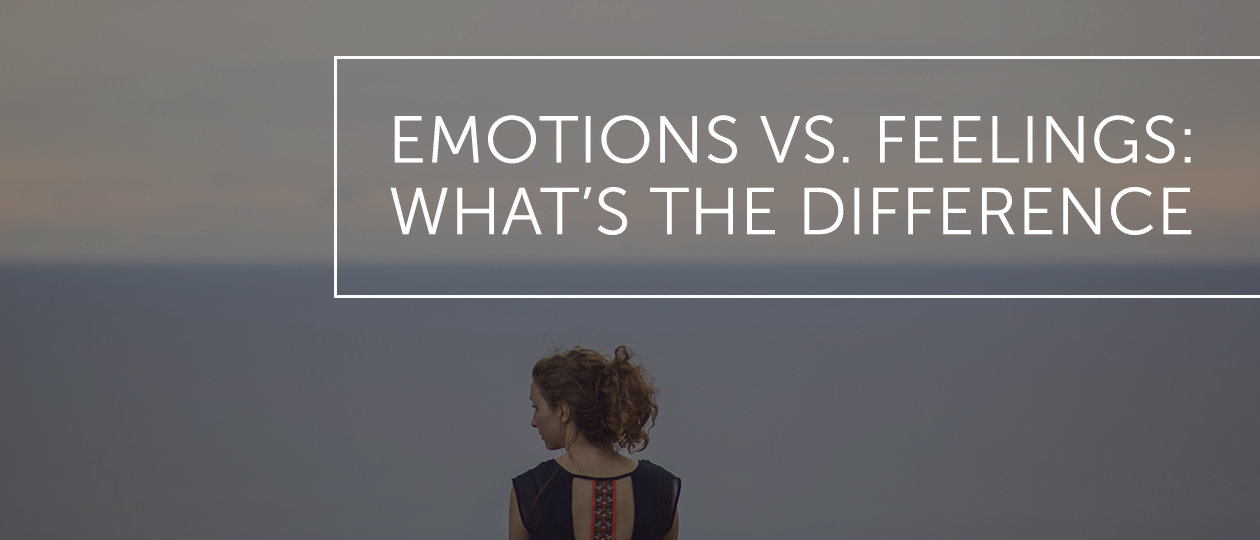Emotions Vs. Feelings: What's the Difference
Managing or changing emotions is probably the hottest topic in today’s health world, mainly because stress and anxiety are today’s biggest problems. But so far, we seem to be doing a pretty poor job of it, because the failure rate for people seeking help with their negative emotions is about 90 percent. I believe the main reason for this is a fundamental misunderstanding of source vs symptom by our modern—for lack of a better term—emotional professionals.
Imagine that you came home to a broken pipe spewing water all over the floor of your house. Is your first move to grab a mop, or turn the water off? Of course anyone who isn’t brain damaged or a small child would turn the water off first, because we understand that it’s pointless to start cleaning the mess before dealing with its source. But when it comes to dealing with negative emotions, it seems to me that most people, even among our emotional professionals, go right for the mop and towels without ever bothering to stop the water!
So how do we resolve this? I think that first, we need to get on the same page about a couple of definitions. Emotions and feelings are treated as synonyms by virtually every author, psychologist, and other so-called expert, but I am convinced this is not the case, and misunderstanding this is one of the chief ways we keep going wrong.
Emotions are tied to your current physical, external life circumstances. Are you too hot or cold? Do you have enough money to pay bills this month? Do you like your job? Is your spouse, or your family, or your friends a source of love and joy, or of frustration and irritation? These are your emotions, and they serve an important purpose. When you’re hot, you’re supposed to feel a negative emotion related to that so that you won’t let yourself overheat and pass out. If you can’t pay your mortgage, you’re supposed to have a thought and emotion that pushes and inspires you to get out there and make a little more money next month. When nothing big is wrong in your circumstances, you should feel relatively happy and grateful day in and day out. What’s more, even when something is wrong, it shouldn’t interfere much with your day-to-day happiness and satisfaction, at least not for long.
Feelings are another animal altogether. They are not necessarily connected at all to your current external circumstances. Instead, they are dictated by your internal circumstances, which you would call your memories. Through thousands of years of devolution, these memories have become so corrupted by errors, lies, and fear that today a high percentage of people are living in constantly negative feelings as a result of an unconscious malfunction, like a computer with a virus.
There’s a simple test for whether or not you’re experiencing this type of malfunction in your feelings. Ask yourself: are you experiencing negative feelings when there is nothing significantly wrong with your circumstances? Now, you may need to get a second opinion from someone who you know will be honest with you. The trick is that when we have negative feelings, we tend to attribute them to our circumstances even when those circumstances aren’t really the problem. The last time you felt a little angry without knowing why, I’ll bet that you didn’t think, “Oh, I bet this is because of something that happened to my grandmother about a hundred years ago.” In over 30 years of counseling people, I’ve never heard anyone say anything like that. No, of course not! It’s always because so and so did this and they really ought to know better, or because what happened at work today was just so unfair. But these are rarely the actual source of the problem.
I’ve dedicated my professional life to healing unconscious memories, what King Solomon called “the issues of the heart” 3000 years ago. When you do that, you daily feelings will be of love, joy, and peace. Even when something goes wrong in your circumstances, you may feel bad for a minute or so, but then you’ll catch yourself. The only thing that could derail you even a little would be a life-threatening situation, but even then, once it passed you’d be right back to love, joy, and peace. But because of the lies and errors in our minds, the average person is virtually living in this stress and thinking it’s normal. Well, it’s not. So put down the mop, heal your unconscious memories, and turn the water off. Once you do that, your emotions will take care of themselves.
Have a blessed, wonderful day!
Alex Loyd




Add a Comment